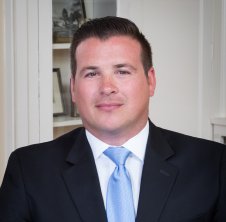 Changes to the federal estate and gift tax laws that emerged from the U.S. House of Representatives as part of the Build Back Better Act (H.R. 5376) have been removed from the latest version of the legislation.
Changes to the federal estate and gift tax laws that emerged from the U.S. House of Representatives as part of the Build Back Better Act (H.R. 5376) have been removed from the latest version of the legislation.
Key provisions to be dropped—at least for now—include dramatically lowering the estate and gift tax exemption amount, and eliminating “step up” in basis rules that essentially eliminate capital gains taxes for the increase in value of an asset during the benefactor’s lifetime, which also positions a beneficiary to pay less in capital gains when the asset is sold.
Those and other changes were part of the tax changes “framework” issued by the House Ways and Means Committee in September.
While their elimination is a positive development for many families, business owners, and high net worth individuals, Congressional observers urge vigilance, warning that measures removed from working legislation can reappear.
Cramer & Anderson Partner Josh Weinshank, the firm’s Fairfield County Trust and Estate Planning and Administration Group Leader, has been monitoring the Build Back Better Act closely and shared his cautious optimism with clients, saying, “The Bill is still being negotiated, and we will keep you updated if there are any changes in the future that might affect your estate plan.”
Removal of the framework changes means the estate and gift tax exclusion remains at $11.7 million—a doubling of the previous exclusion level that was enacted in the Tax Cut and Jobs Act of 2017. (Amounts above the $11.7 million can face a tax rate of 40%.)
That exclusion level is scheduled to sunset as of Dec. 31, 2025. The framework changes that have been dropped from the Build Back Better Act would have move the sunsetting up to Dec. 31, 2021.
“Proposed changes were many, from that lowering of the estate tax exemption amount and elimination of step up in basis to elimination of certain tax efficient trusts, taxing trust assets, and under certain circumstances causing trusts created in the past to become includable for estate tax calculation purposes,” Attorney Weinshank wrote to clients.
A Forbes story broke down some of the changes for trusts that had been baked into the framework before being removed:
- Assets of irrevocable or grantor trusts created subsequent to adoption of the bill would have been included in estates upon death, “thereby defeating a primary purpose of the trust.”
- Irrevocable life insurance trusts signed and funded after the date of enactment of the legislation would have been taxed for estate tax purposes upon death—again defeating a primary purpose of this type of trust.
- When an interest in an entity like an LLC is gifted to a family member, the owner can take a discount on valuation, citing a reduction in control or marketability. Discounts for entities holding nonbusiness assets such as cash, equity and certain types of real estate would have been eliminated.
In assessing the most current status of the legislative situation for trusts, a National Law Review story warned, “Those with grantor trusts or estates in excess of the federal estate and gift tax exclusion, or who have previously funded irrevocable trusts to which the proposed surtaxes would apply, would be wise to stay in touch with their advisors on these topics. The legislative proposals in these areas remain very fluid.”
Anyone with questions or concerns is encouraged to reach out to Attorney by email at jweinshank@crameranderson.com or by phone at (203) 403-4005. See below and his website profile page for more information.
About Attorney Weinshank

Cramer & Anderson Partner Josh Weinshank
Attorney Weinshank’s practice focuses on Trust and Estate Planning, as well as trust and probate administration, tax planning, asset protection, and Elder Law.
He advises clients on effectively and efficiently preserving and creating intergenerational wealth by addressing their full range of tax and personal concerns, including assessing entire portfolios and incorporating goals as part of implementing strategies to reduce estate and gift taxes. Attorney Weinshank also addresses income tax concerns through the management of capital gains and appreciation of assets.
Additionally, Attorney Weinshank focuses on Title XIX (Medicaid) Planning, advising clients on ways to preserve assets while qualifying for governmental assistance programs.
A resident of Ridgefield with his wife, Steffani, and their two daughters, Attorney Weinshank gives back to area communities through roles that include serving as Chair of the Legacy Society for Danbury and New Milford hospitals, part of Nuvance Health, which recognizes donors who include the hospitals in their estate planning through wills, trusts, annuities or other charitable giving vehicles.
He also serves on the Development Committee of the RVNAhealth and is a Union Savings Bank corporator.
Attorney Weinshank has been named a Super Lawyers Rising Star, as well as winning a 2019 Fairfield County Business Journal 40 Under 40 award and being named a 2017 Connecticut Law Tribune New Leader in the Law.

